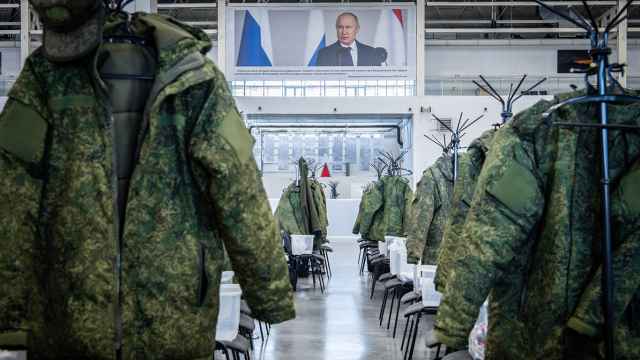The CIA published 12 million pages of declassified documents online Jan. 17, releasing to the public decades of U.S. intelligence files that shine new light on Washington's foreign policy during the last century.
The electronic files, which cover a period between the 1940s and the 1990s, offer new insights into the Cold War, and U.S. conflicts with Vietnam and Korea. Around 33,000 of the documents are intelligence files pertaining to Russian territory. Another 150,000 relate to other Soviet Republics.
The files, known as the Crest database, also feature the papers of former Secretary of State Henry Kissinger and documents that detail Nazi war crimes. The Crest files also contain declassified U.S. intelligence on UFOs, research into telepathy, and recipes for invisible ink.
The Failed Berlin Tunnel
Some of the most interesting files describe the early history of the Cold War. One document tells the story of Operation Gold, a joint scheme concocted in the 1950s by the CIA and British security services to tap into communications of the Soviet army in Berlin using a tunnel into the Soviet-occupied zone.
This excerpt from the Crest database describes how the U.S. and British intelligence plans for the tunnel were thwarted from the very beginning of planning and construction:
“The engineers decided at one point that an
object of known size in the East Zone would be useful as a reference
point, so a baseball game was organized with the objective of
knocking a baseball as far as possible into the East Zone. This scheme
was frustrated by the friendliness of the East German guards who kept
returning the baseball.”
Here is a candid description of how the CIA learned a British mole had foiled their plot:
“In April 1956, MI5 discovered that George Blake, a case officer, had been recruited by the Soviets as a prisoner in North Korea in 1952 and had continued working under Soviet control. Blake had stated he had informed his Soviet contact of the planned tunnel.”
Soviet Jokes
What most amused the Russian Internet was a list of Soviet jokes prepared for the CIA's deputy director of counter-intelligence. The documents contain both popular and lesser known jokes from the Soviet era, including the following:
"A man walks into a shop. He asks
the clerk, "You don't have any meat?" The clerk says, "No,
here we don't have any fish. The shop that doesn't have any meat is
across the street."
"An American explains to a Russian that the United States is a truly free country because he can stand in front of the White House and shout 'To hell with Ronald Reagan!' The Russian says that this is nonsense, because he can easily stand in Red Square and shout 'To hell with Ronald Reagan."
Anti-Soviet Ukrainian and Baltic Resistance
A large section of the Soviet-related database describes anti-Moscow sentiment in Ukraine and the Baltic states, including the formation of resistance groups.
What may be of most interest to historians are the details of Moscow's Brezhnev-era crisis with Ukrainian Communist Party chief Petro Shelest. Shelest was ousted for defending the Ukrainian language and culture against Russian influence in the 1960s.
Not Everyone Was Happy
Retired Soviet cosmonaut Aleksey Leonov, who became the first human to conduct extravehicular activity in 1965 in a 12-minute spacewalk, had some harsh words for the CIA's reports on alleged UFO sightings.
A 1966 file describes an “unusual phenomenon” spotted on Iran's border with the USSR. Another report featured diagrams of what spacecraft from other worlds might look like, if they existed, and asked if such crafts posed “a possible threat” to U.S. security.
“Is the CIA a serious organization?!” Leonov told Russian TV channel Zvezda. “I worked in Houston and I saw no such thing.”
A Message from The Moscow Times:
Dear readers,
We are facing unprecedented challenges. Russia's Prosecutor General's Office has designated The Moscow Times as an "undesirable" organization, criminalizing our work and putting our staff at risk of prosecution. This follows our earlier unjust labeling as a "foreign agent."
These actions are direct attempts to silence independent journalism in Russia. The authorities claim our work "discredits the decisions of the Russian leadership." We see things differently: we strive to provide accurate, unbiased reporting on Russia.
We, the journalists of The Moscow Times, refuse to be silenced. But to continue our work, we need your help.
Your support, no matter how small, makes a world of difference. If you can, please support us monthly starting from just $2. It's quick to set up, and every contribution makes a significant impact.
By supporting The Moscow Times, you're defending open, independent journalism in the face of repression. Thank you for standing with us.
Remind me later.






